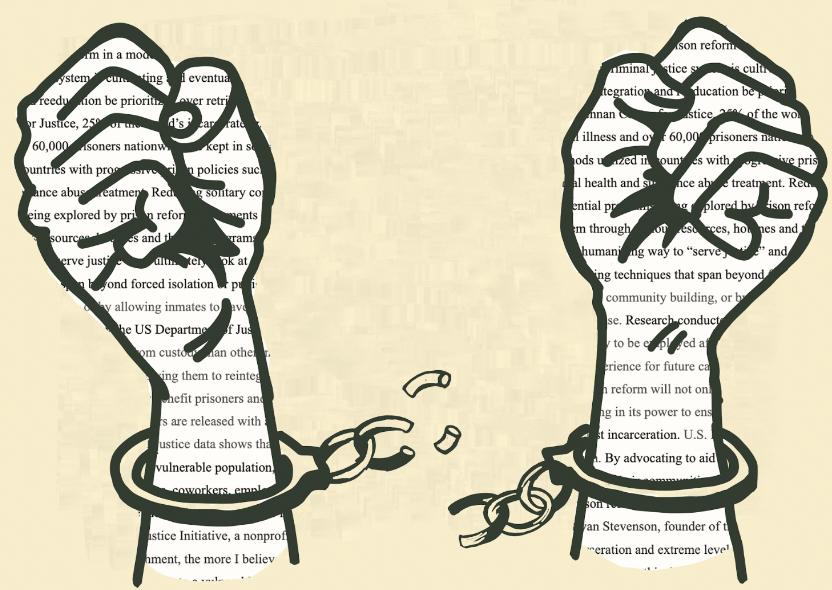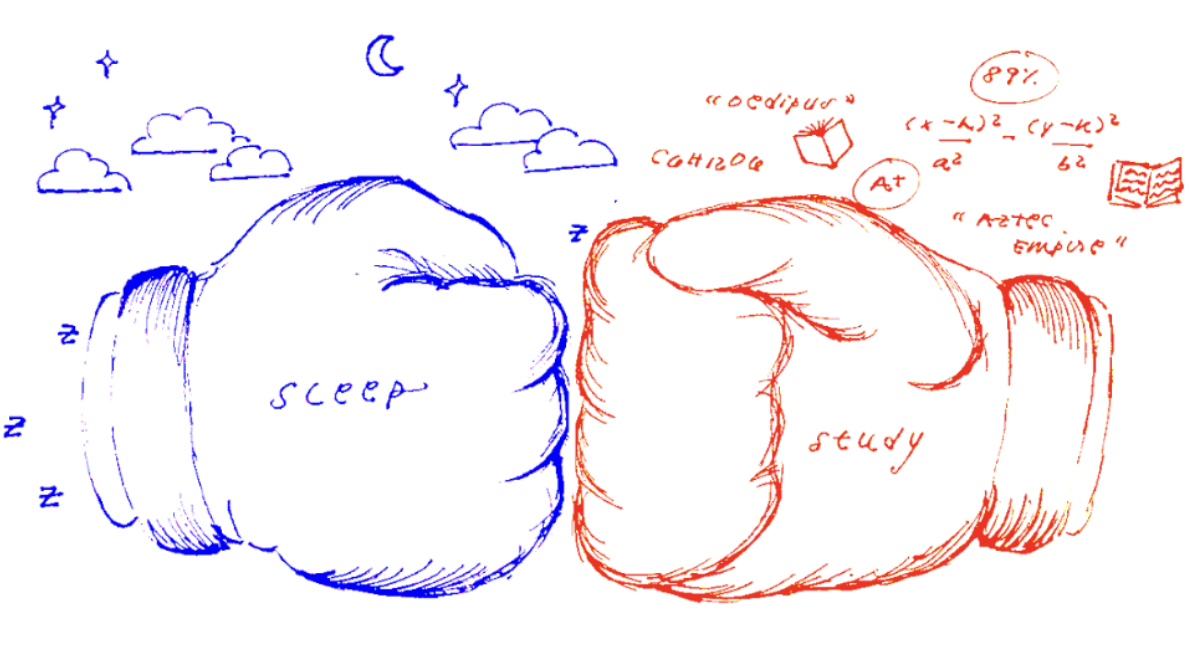The word prison calls to mind images of a bleak, dangerous place without hope for anything beyond barbed wire and concrete walls. It conjures the feeling of being trapped, confined, and overcrowded yet emotionally isolated. In the mainstream American public narrative, this type of punishment is often perceived as justifiable or even fully deserved. Yet the call for prison reform in a modern context goes beyond the basic principles of human decency and forgiveness, becoming a question of what type of citizens our criminal justice system is cultivating and eventually reintegrating into society. It impacts the greater good of communities, and thus, it is imperative that reintegration and reeducation be prioritized over retribution when thinking about the criminal justice system moving forward.
According to a 2017 report by the Brennan Center for Justice, 25 percent of the world’s incarcerated population resides in the United States. More than half of these individuals suffer from some form of mental illness and over 60,000 prisoners nationwide are kept in solitary confinement, including a sizable percentage of mentally ill and/or neurodivergent inmates. Methods utilized in countries with progressive prison policies such as Germany and the Netherlands take into account the diverse needs of prisoners by offering mental health and substance abuse treatment. Reducing solitary confinement and encouraging contact with the outside world while incarcerated are also priorities. Potential programs being explored by prison reform movements in the U.S. also include helping inmates obtain government-issued ID before release and supporting them through various resources, hotlines, and therapy programs to help them reacquaint themselves with society. Prison should be a path to reintegration rather than a dehumanizing way to “serve justice” and ultimately look at the individual needs and circumstances of those incarcerated.
In most cases, prison justice is achieved by utilizing techniques that span beyond forced isolation or punishment. These programs can come in the form of basic correctional education, including civic education and community building, or by allowing inmates to have some degree of educational opportunities while incarcerated so they can pursue secondary education after release. Research conducted by the U.S. Department of Justice shows that inmates who worked in prison industries were 24 percent less likely to recidivate and 14 percent more likely to be employed after release from custody than other inmates. Creating more accessible volunteer opportunities allows inmates to accumulate knowledge and experience for future career paths, allowing them to reintegrate into society more seamlessly and eventually support themselves financially.
Taking steps towards prison reform will not only benefit prisoners and justice workers but will contribute to the general welfare of society moving forward. If the state does everything in its power to ensure that prisoners are released with a moral compass and the ability to support themselves, they will have less motivation to commit crimes post-incarceration. U.S. Department of Justice data shows that inmates who participate in correctional education programs have 43 percent lower odds of returning to prison. By advocating to aid a particularly vulnerable population, we are uniting in a nationwide attempt to create helpful, productive citizens who will one day contribute to their communities as our neighbors, coworkers, employees, and friends. Furthermore, as the majority of incarcerated individuals fall below the poverty line, prison reform opportunities will bridge the wealth gap and make for more equitable demographic information, including a more racially and financially diverse voting pool.
Bryan Stevenson, founder of the Equal Justice Initiative, a nonprofit which advocates for prison reform, says in his book Just Mercy that “the closer we get to mass incarceration and extreme levels of punishment, the more I believe it’s necessary to recognize that we all need mercy.” Yet the need for prison reform expands so far beyond an ethical obligation to show mercy to a vulnerable population. It deals with the promises of safety, well-being and moral guidance being offered to future and current members of our local and national communities, which directly translates into support for the communities themselves, ensuring a brighter future for all through actions that can and should be taken right now.








